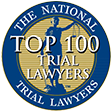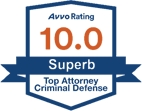Samuel J. Randall IV
Managing Partner
Since 1998, Samuel J. Randall, IV has built a solid reputation among his peers, adversaries and the judiciary in North Carolina as an aggressive and skilled criminal defense lawyer and advocate for his clients.
Meet Samuel
William (Bill) E. Pastor, III
Associate Attorney
Mr. Pastor earned his Juris Doctor from Rutgers Law School in Newark, New Jersey. While at Rutgers, he developed a strong interest in criminal, family, and constitutional law.
Meet William
How Many Attorneys Are Board-Certified In State And Federal Criminal Law?
The answer is very few. This distinction signifies that a lawyer has a certain level of experience in the particular field and has obtained success at trial. At our firm, clients are served by an attorney who is a board-certified specialist in state and federal criminal law.
The stakes are high with any criminal charge. You may feel the deck is stacked against you as the prosecution bears down. The way you are treated may seem to be “guilty until proven innocent” but we understand that you are innocent until proven guilty. You need to realize a conviction will often carry lifelong consequences and the initial steps and decisions you make will affect your future.
Our attorneys understand this and go to bat to fight to ensure you receive the correct presumption of “innocent until proven guilty.” In addition to having a board-certified attorney, we wrote the book on criminal procedure in North Carolina. Our criminal attorneys have been recognized as SuperLawyers and as Top 100 Trial Lawyers. We have also invested time and resources to obtain the most up-to-date training on defense strategies by attending Trial Lawyer College. We put this training and experience to work for you in battling for the best possible outcome. Make an investment in your future and place your case in trusted hands.
Straight Talk From Tough Trial Lawyers in Charlotte, NC
If you face criminal charges, you don’t need false hope and you don’t need a cheerleader — you need straight talk and tough representation. Our lawyers will thoroughly examine your case and tell you what your prospects are, good or bad.
We do not inflate our clients’ hopes in pursuit of legal fees. We tell it like it is and expect the same in return.
However, you need more than straight talk, you need attorneys who know how to win cases. We do! To discuss your case, please call (980) 237-4579, or fill out our online form to set up a free initial consultation with an experienced attorney at our firm.












